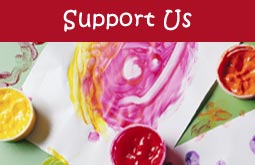"Special education" is generally used to specifically indicate teaching children whose difficulties and special needs reduce their ability to learn independently or in an ordinary classroom. It is an education which addresses each child's individual differences and needs.
Ideally, this process involves systematic planning and arrangement of teaching procedures, adapted equipment, teaching aids and materials, accessible settings and other interventions designed to provide the maximum level of independence, motivation and success for the child to live and be accepted in his/her community.
Educating the child in different set ups is very important. Being a part of a group as well as individualised remediation helps in the development of the child. As the child sits in a group, he/she learns to wait, interact and communicate with his peers. Individualised remediation will improve a skill or ability of the child.
Special education teachers must be organised, patient, understanding and accepting. They must also be able to motivate the children and enjoy with them. Techniques used by special educators may include providing more practice or explanation, repetition of information and devoting more time working on the basic skills.
Common special needs children include challenges with learning, social and communication issues, emotional and behavioural issues, developmental issues and physical difficulties.
In most developed countries, educators are modifying teaching methods and environments so that a maximum number of students are served in general education environments. Special education in developed countries is often regarded less as a "place" and more as "a range of services, available in every school". This integration can reduce social stigmas and improve academic achievement for many students.





